#commune
Tesimony by VANESSA FRIEDMAN, Oregon
Titled: “What Living on a Queer Commune in Rural Oregon is Like”
I didn’t mean to move to a queer land project in rural Southern Oregon when I left New York City two years ago searching for an adventure. But in retrospect it makes perfect sense. The land that I now call home is exactly what I would have collaged on a vision board if you’d asked me where, in my most perfect manifestation, I would like to spend my days: A combination modern queer safe-space, early seventies back-to-the-land commune, and a riot grrrl’s DIY fever-dream.
There is a long history of queers moving to rural places and setting up intentional communities where we can fly under the radar of mainstream oppression and expectations. To describe all such places would be impossible. “Queer land” means different things for different people. There are sex positive sanctuaries, drug-free homesteads, separatist communities. Some of these lands have been around for decades and the people who live there would bristle at my use of the word “queer” to describe them (identities are tricky things to pin down, even trickier to assign to others); some have been around for just a year or two and are still looking for a permanent place to settle, renting spots that’ll do while the inhabitants save enough to buy land. I can’t speak for all queer lands, and I can’t even be the definitive voice for mine–it’s been around for a decade, and I’ve only lived here for nine months.
What I can tell you about is what living on queer land has meant to me, a queer grrrl in her mid-twenties, and why I think it’s so important that all queers know these spaces exist, and that we keep investing in them.
I’d been traveling and living out of a backpack for months when I got here last summer, but I fell in love with our 46 mostly wild acres immediately. Upon arrival I met the women who owned the place, pitched my tent, established how much work I’d be expected to do to earn my keep, and met Rachael, another young woman who was passing through.
At dinner on my first night Rachael suggested that I read a book she found on the communal bookshelf: Weeding at Dawn: A Lesbian Country Life, by Hawk Madrone. Later that evening I wiggled into my sleeping bag and gobbled up the words all at once, finishing the book in one sitting and swiftly developing a crush on the author, who is now in her seventies and lives about an hour away. I learned at breakfast the next morning that I would be meeting her the following weekend, at an open house we were hosting. We’d skill-share, potluck, and socialize. I couldn’t wait.
This is my favorite part: getting to know other human beings. Specifically, queers. There is something so damn beautiful about the queer community, about the individuals who belong to it, about our shared history and unique experiences and the honesty and openness that can be channelled when queers gather and talk to each other, exist together, escape the assumptions of heteronormative living. It is extra beautiful when we bridge the generation gap, mingle with our elders and our youth, appreciate that we owe so many of the comforts of our own queer lives to the powerful folks who came before us—but also that the young have much to teach, too.
Last September a young woman from Ohio came to volunteer on our land and confided in me that it was the first place she had witnessed other women being so powerful, so in charge, so supportive of each other. “I didn’t know this kind of life existed,” she said. “Now that I know, I want to live it.” She cried when she left.
I am constantly begging my friends to come visit me on the land, not because I am lonely or because we don’t already have a constant stream of visitors, but because I want all the queers I have ever known to understand how powerful we are, how self-sufficient we can be. I want everyone I have ever loved to experience this feeling, and I mean so many things when I say that. I mean that I want them to hold a chainsaw and chop wood and then use that wood to make a fire that will keep us warm in the winter, but I also mean I want them to exist in a space that is just a little bit out of the patriarchy’s grasp. I want Diva Cups and skipping showers to be the norm but tampons and deodorant not to be scorned if that’s what you want to use; I want communal cooking and intergenerational learning and late-night slumber parties and impromptu sing-a-longs and love, so much love.
In a world that is steeped in digital media, it feels like a radical act to carve out a physical space and call it ours. The internet has provided a safe space for millions of young queers who may have no where else to turn in their small towns or their conservative families or their own total confusion, it’s true, but I want those people to know there are places where we can meet face to face, get our hands dirty together, fight and fuck and listen and forgive and live, without any screens to separate us. I want to talk about queer spaces that are not New York, San Francisco, London, and Berlin. I want to advocate for community building that does not only take place in bars.
I want to acknowledge how important queer land is, how grateful we should all feel for it, and how capable we all are of creating it and keeping this legacy alive. I want to help lead a queer revolution in the woods because living here has made me see that we can.
Originally published by Nylon, 3/25/15
Post link
“I Will Never Let You Down” - @bkcollage

Kløvblad
Lat: Schizophyllum commune
Please help me collect your local name for this mushroom.
In the comment field write country and mushroom name.
#mushroomspotting#mushroomhunting#danishmushrooms#fungi#danskesvampe#svampejagt#natur#nature#svampe#mushroom#mushroomsociety#amazingmushrooms#mycology#mycophile#shroomatnoon#fungus#wildmushroom#mushroom#mushroomsofinstagram#fungihunter#svampetur#fungifreak#thinkfungi
#Kløvblad #Schizophyllumcommune
#Schizophyllum #commune
Post link
Procès-verbal of the session of the General Council of the Commune (23 Pluviôse, Year II)
Excerpt from the procès-verbal of the session of the General Council of the Commune of 23 Pluviôse, Year II of the Republic.
The three Representatives of the People, deputies from the Colonies, the one black, the other métis, and the third white, enter the General Council of the Commune, and, in the name of their constituents, they present the feelings of affection and esteem that the virtues [and] the courage of the people of Paris and of its magistrates have inspired in them.
Speech of the métis Deputy at the General Council of the Commune of Paris.
Citizens Magistrates of the people,
We come to consolidate a pact of union and fraternity with the people of Paris, in the name of the 6 or 7 hundred thousand individuals who inhabit Saint-Domingue ; it has started the revolution, it has fought the tyrant, it has overthrown despotism, and it has served the cause of liberty and equality so well, that the Republic is finally one and indivisible. We come to pay the homage of our administration to it, for its glorious works and for its successes ; it is by hearing the account of its efforts [and] of its victories, that we have found, within ourselves, the energy which characterises the free man, the republican, and which was smothered by the degradation wherein we were buried. It is to the progress of the spirit which it has developed, that we owe the fortunate regeneration which has, firstly, made us citizens, and which finally comes to restore the name men to our brothers, in exchange for the one of slaves. This odious word will no longer sully the dictionary of the French ; henceforth, there will, in all parts of France, only be a people of friends and brothers.
The name of the People of Paris will, in our memory, eternally unite with the idea of liberty, of the French Republic, of the National Convention, and with the one of the submission and the inalterable attachment to one’s laws.
People of Paris, these are the feelings that I present to you, in the name of my brothers, and I present them in the hands of your magistrates.
Signed, MILLS.
Speech of the black deputy.
Citizens,
I was a slave in my childhood. 36 years ago, I became free through my industry ; I was bought [by] myself. Since, in the course of my life, I felt worthy of being French.
I served my patrie with the esteem of my leaders of the last war, in the campaign of New England, under General d'Estaing. In the very memorable days of the last 20 and 21 June (old style), when the traitor Galbaud, at the head of the counter-revolutionaries, wanted to have the delegates of France slaughtered ; I armed myself with my brothers in order to defend them ; my blood flowed for the French Republic, for the noble cause of liberty: I do not claim to make myself a merit out of it, I only did my duty.
Having barely escaped the dangers of my wounds, I was appointed, by my concitoyens, in order to represent them in France and to bring you the homage of their devotion and their eternal fidelity to the French Nation ; citizens, these are my only titles ; this is my glory.
I have only one thing to tell you: it is the tricolour flag that has called us to liberty ; it is under its auspices that we have regained this liberty, our heritage and the treasure of our posterity ; as [long as] a single drop of blood will be left in our veins, I swear to you, in the name of my brothers, that this flag will always float on our shores and in our mountains.
Signed, BELLEY.
Speech of the white deputy.
Citizens,
When all French [people] were free, between 6 and 7 hundred thousand individuals were still slaves in Saint-Domingue, and just as many on our other islands. – They were surrounded by evils ; they were on French territory as in a foreign country ; they did not have the permission to have a patrie ; they fertilised French soil ; they contributed to the prosperity of the metropolis, and they did not draw any benefit from their sweat ; they did not have anything, not even hope.
I have had the pleasure of pleading their cause, and of attaching them to France ; the National Convention has been their liberator, it has broken their chains, it has restored the Rights of Man to them ; for them, misfortune is not eternal: nature lies in the joy of seeing such a beautiful triumph ; my happiness is complete.
In addition to my bliss, having been born in Paris, I find myself amidst my concitoyens, my compatriots ; I have nothing left to desire, if not their esteem, and to prove myself worthy of them in the Convention ; and until my last breath, I will be [worthy], I swear it, and I will keep my oaths.
Signed, DUFAY.
The president responds: « Citizens, the Rights of Man were violated for a long time ; crooks [and] kings had, through a long slavery, debased humankind ; they did not blush about trading humans. Thanks to our sacred revolution, we have recovered our rights, [and] we will keep them ; unite with us ; let us form an unwavering faisceau ; let us vow the death of the tyrants. Soon, our pledges will be fulfilled, and earth, [having been] purged of the monsters that sully it, will henceforth only offer the touching sight of truly free men. »
Then, CHAUMETTE takes the floor, and says:
« In the days when, for pusillanimous souls, it was dangerous to proclaim the Rights of Man and to apply them to People of Colour, the Commune of Paris, braving both prejudices and fears, dared to welcome, in its midst, the victims of egotism, and received from them, as a reward for their attachment, the flag that you see hanging over our heads. The visit of our brothers, the deputies of Saint-Domingue, compensates us today for the feigned disdain that we have experienced, when, at the bar of the National Convention, we led the Americans, preceded by a woman of 114 years of age…, a woman who bore the trace of a century of misfortunes on her face, of a century of crimes on behalf of our unfortunate fathers, or rather the seal of their own enslavement ; but then, the Convention was not itself: it could only dedicate its efforts to delivering the French People from the tyranny of the federalists who infected everything, even the senate itself.
I remember it well, it was the year after the expulsion of the kings, that Rome, upon the motion of Valerius Publicola, pronounced the laws on the liberation [of the slaves] ; and, among us, it was in the year after the death of the tyrant, that the very name slave has been destroyed.
Citizens, we have more than one Valerius Publicola, more than all his assembled works: we have a National Convention, which does not content itself with making laws on the liberation, but which, with a single word, pronounced the abolition of slavery ; we have a Publicola Convention!… long live the Convention… long live the Publicola Convention!… (The people from the tribunes repeats it.) Long live the Publicola Convention!…
And you, men from the Colonies, applaud with us to the works of a new people which wants to make our concitoyens forget the crimes of the old man ; no, no, the murderous nabot will no longer crush the ankle of the unfortunate slave’s foot. Ah! he shall depart immediately, this fortunate being, which, as the voice of our legislators, will also be the voice of the sacred laws or nature in our Colonies ; he shall fly, he shall cry Liberty! – He shall advance in the home of arrogant avidity ; he shall set forth with the speed of light upon the barbarous piqueur, while crying: stop, you wretch, you are striking a free man…
Oh you, unfortunate mothers, obliged to curse your fertility, rest assured, your children will be citizens ; the source of crimes is exhausted: no, you will no longer smother your children in order to shield them from slavery and from the murderous whip ; you will no longer smother them in order to shield them from the long ordeal of life ; you will nourish them for the patrie, you will nourish them so that they can enjoy their liberty and bless their liberators. And you, Black Men, you… (I must use your expression) you will no longer swallow your tongue, in order to be able to hide your degradation and your torments under the tomb ; on the contrary, you will preserve them in order to pronounce the death sentence of tyranny, in order to inveigh against your oppressors, regardless of the skin with which nature has covered them ; you will preserve them in order to proclaim, in both worlds, the immortal declaration of the Rights of Man, [which has been] buried for you for too long under the jumble of astute speeches, and the tiresome paperwork of the long process of humanity against despotism.
For you, Commune of Paris, enjoy, for a moment, the little good that you have done. It is nothing, this is true, in comparison with what our Legislators have done ; but nature, which makes the Cedar of the Lebanon grow, also grants asylum to the simple violet, under the shadowy vaults of our forest. Our legislators deposit, at the feet of the Patrie, at the feet of liberty, the immortal trophies of their glory. Let us gather the humble field flower, and let us also bring our offering to the common divinity. The legislator proclaims, in the name of the French People, the rights of humanity, and marks his works with new good deeds ; we shall be allowed to celebrate them ; let us sing of sacred equality, and our songs shall resound in the mountains of the land of the children of the sun.
One the next Décadi, [30 Pluviôse], as our decrees command, we will assemble with our brothers, in the Temple of Reason, in order to read out the Rights of Man there and to sing the hymns of liberty. Let us also celebrate the abolition of slavery there. I propose that a member of the General Council delivers a speech on this subject, and that this festival is dedicated to celebrating this pleasant period of our revolution. »
The Council, adopting the proposal of the national agent, decides that he will himself be invited to deliver the speech that he proposes ; that all constitutional authorities, the electoral body, the sections, the popular societies, the civil and revolutionary committees, will be invited to this festival: finally, decides that the administration of public works will take the measures [that are] necessary for the order that is to be observed there.
[Brief account of the Festival of 30 Pluviôse]
And on Décadi, 30 Pluviôse, the People of Paris gathered with its magistrates, in the Temple of Reason. The crowd was immense. Upon the arrival of the deputation of the National Convention, which included the deputies of the Colonies, repeated cries of Long live the National Convention, and applause, mingling with the noise of the instruments of war, resounded in the vaults of the building and were repeated outside.
Thecitoyensandcitoyennes of Colour were placed, along with the deputation of the National Convention, in an enclosure [that was] decorated with garlands and crowns.
The ceremony began with an overture by Gossec, performed by the National Institute of Music. The president of the Council then read the declaration of the Rights of Man.
After this reading, another piece of music was performed ; during which the most pleasant effusions of fraternity manifested themselves. Cries of Long live the Republic put an end to this touching scene.
Thesecrétaire-greffier then read out the analysis of all the beautiful deeds that the past month had witnessed. Another piece of music followed. Finally, Citizen Chaumette delivered [his famous] speech, which was often interrupted by applause: tears of affection flowed from all eyes, they were charming. Once the speech ended, the citizens of colour came to give the kiss of fraternity to the orator. A black child, lifted by the arms [of the citizens] and thus handed over to the Representatives of the People, produced the greatest effect ; but soon, the Men of Colour, followed by the municipality, advanced to the sound of a military march, beside the Representatives of the People, their hands carrying the crowns that they presented to them. It would have been necessary to have seen this beautiful scene, in order to really feel it. Men of all colours, formerly slaves, pressed between the arms of the Representatives of the French People, soaked with their tears… The arms of all spectators raised towards the sky, cries of Long live the Republic,Long live the Convention [were] repeated a thousand times… On this day, the Legislators must have felt how expressive the gratitude of the People is.
After a drum roll, everyone resumed their place, and the Men of Colour, always pressed around the representatives of the People, remained in this attitude, during the Hymn to Liberty, which closed this interesting festival.
Upon leaving the Temple, the crowd had grown outside ; the nearby squares and streets were filled with Republicans who, in their turn, demonstrated their gratitude to the popular representation, as well as the role which they played in the festival that had just been celebrated.
Post link
Anarchism and Its Aspirations (PDF) byCindy Milstein
The first book the “Anarchist Interventions” series published by the Institute of Anarchist Studies and AK Press in 2010.
Post link
Huey P. Newton (seated on porch) watches Donna Howell and the children of the Intercommunal Youth Institute. Photo: Lauryn Williams, 1972
The Oakland Community School (OCS) was one of the most well-known and well-loved programs of the Black Panther Party. Point Five of the Black Panther Party’s original 1966 Ten Point Platform and Program, emphasized the need to provide an education that, among other things, taught African American and poor people about their history in the United States. To this end, the Oakland Community School became a locale for a small, but powerful group of administrators, educators, and elementary school students whose actions to empower youth and their families challenged existing public education concepts for black and other poor and racially marginalized communities during the 1970s and 1980s.
Historically, however, the educational programs of the BPP started long before the OCS with the vision of the party’s leaders. As early as 1967 Huey Newton and Bobby Seale began speaking to high school youth at San Francisco/Bay Area public schools. In 1969, in U.S. cities where there were strong BPP chapters, liberation schools staffed by volunteer party members opened in storefronts, churches and homes. These after-school programs were created to give academic support to black and other poor youth. These community school programs created a forum for young people to explore a factual history of America and a sense of connection and community.
(viaErika Huggins)
Post link
“WE SERVE THE PEOPLE”
New York City chapter of the Black Panther Party’s Harlem office, circa 1970 with racks of free clothes for the community in front.
Post link





I’m still working on a danged webcomic! Here are all the places you can read it:
Read Fairmeadow | Tapas Web Comics
You also can read ahead by subscribing to my Patreon! Wink wink
Fairmeadow Pilot - pg 07 - 11
If you want to read all 20 pages now, check out my Gumroad for a $3 digital download!
Post link
March 28th 1871: Paris Commune declared
On this day in 1871, following elections held two days prior, the Paris Commune was officially proclaimed. The Commune seized power in opposition to the election of a conservative National Assembly February 1871; republican Parisians feared that when they met in Versailles the royalist Assembly would restore the monarchy. When officials of Adolphe Thiers’s government tried to remove the city guard’s cannons as a precautionary measure on March 18th, the people rebelled. The city guard called municipal elections for March 26th, which saw victory for the revolutionaries, who established the Commune to govern the city of Paris. On March 28th, the new government held its first meeting and was formally declared. The Commune immediately set about enacting socialist policies, which included a ten-hour work day, abolition of the death penalty, end of military conscription, banning established religion and promoting female suffrage. They adopted a plain red flag as the flag of the Commune, and envisioned that the situation in Paris would encourage a nationwide revolution. The Commune’s lack of internal organisation left them vulnerable to attack, but the catalyst for retribution came when Communard soldiers killed two French troops. On May 21st, national forces entered Paris through an undefended area, launching a violent campaign of street fighting known as ‘Bloody Week’. Around 20,000 insurrectionists were killed before the Commune fell on May 28th. The government treated the surviving Communards and their supporters ruthlessly - arresting around 38,000 and deporting another 7,000. The Commune became a symbol of socialist revolution in Europe and further abroad, with their supporters lamenting the martyrdom of the Communards.
Post link
An injured orc finds more than she bargains for when she wanders out of the wilderness and into a remote commune.
Fairmeadow is a pilot chapter of an independent comic project I started during Covid quarantine, inspired by tabletop RPGs, the Pacific Northwest, and the communes & counterculture of the late 1960’s. While I develop the rest of the project, I hope you’ll enjoy this 20-page story as a one-off!
Updates weekly for the next 8 weeks.
(Content warning: facial injury, swearing, and mild violence.)
Gumroad/Tapas/Instagram/main art Tumblr!
Post link
I feel like making this statement: blood bonds mean close to nothing to me. Chosen families are what I care for. I handpick my relatives, brothers, sisters, partners and lovers, and I consider it a huge deal when they choose me. Why yes, the keyword here is choice, choosing, being free from traditions and free of creating your own paradigms.
So yeah, I love my family so much.
Wheeler’s Ranch, Alicia displays a colorful patchwork quilt, 1969-70
Photograph by Bob Fitch
Post link
Gosh, moving out of your abusive parents house in secret is exhausting …
I’m 23 btw.. It’s sad that as an adult that is engaged I’m having to run away from home because my parent wont let me leave. I love the space and location but it’s so unhealthy for me to stay in this abusive situation, I feel so blessed to have met my fiance, they gave me a chance to learn that I don’t deserve to be abused and the friends we have made give me the support I need to be able to do something like this. Hello tiny vegan commune hear I come.
If anyone has questions feel free to ask but I may or may not answer depending on what I feel comfortable sharing, Stay tuned for any updates.
There is a good chance that right now you are eating with silverware made from descendants of orgy loving, wife tradin, commies! These freaks weren’t your 1960’s dirty hippie either, try 19th century style. Onieda, the largest sellers of silverware goodness, began as The Onieda Community in 1848 by a horny hippie named, John Humphrey Noyes. One day he he had a dream, a dream that he would start a religious commune, to get those bonnet ladiesss. He convinced people that Jesus had returned and they were living in utopia. Jesus is back, its time to bang the day away! And bang they did, even coining the term “free love” in the process.
To make money for their lust filled commune they sold silverware, stylish palm frond hats, and some weird jarred jelly shit. No kidding. All was going well until, everybody got wrinkly and the leftover young didn’t wanna bang saggin oldies, so they eventually sold out and went uber corporate man!
-Nat Marx, B.A in History from Eckerd College (Our first guest author!!!)
Post link
Tonight’s mood is wishing I could run away to an anarchist commune in the woods and live in harmony with the woodland creatures away from bureaucracy and all other worldly nonsense.









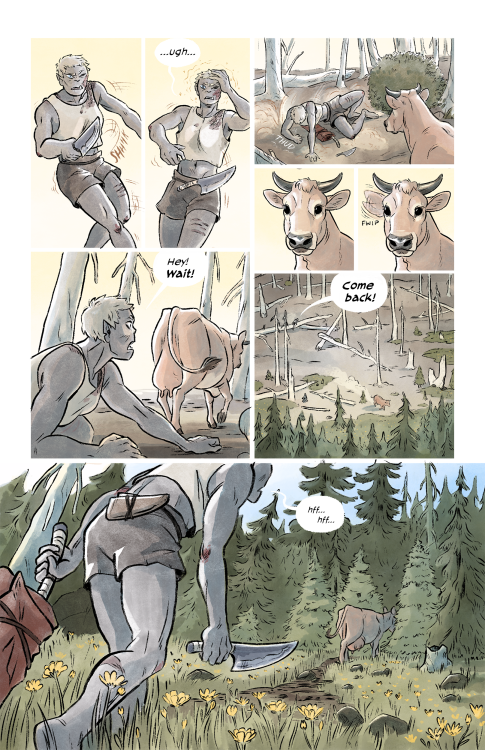

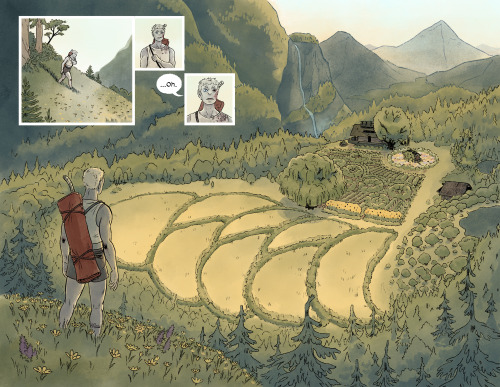
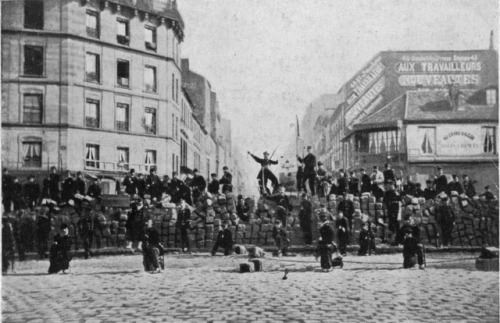

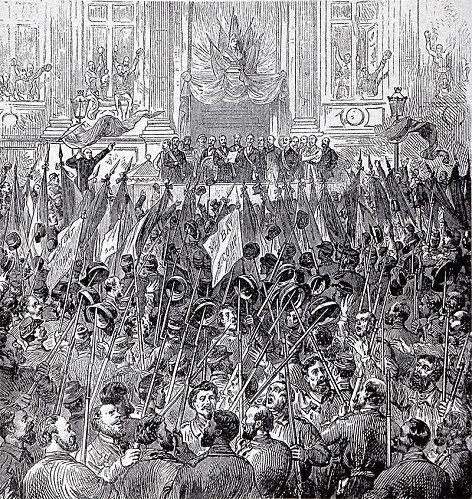
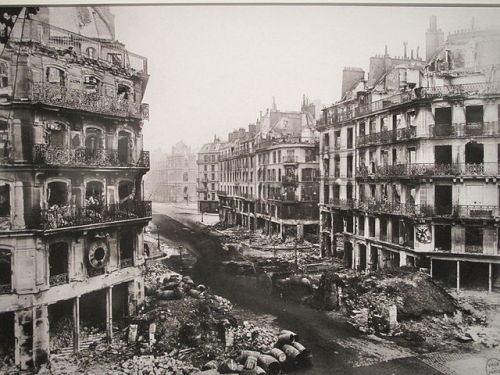
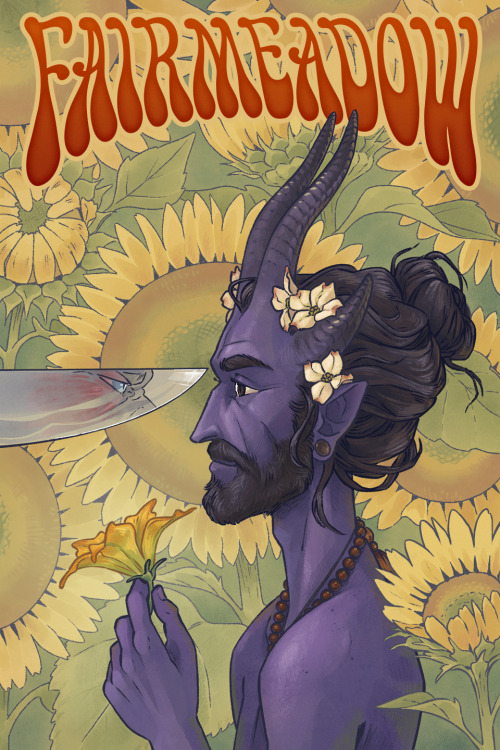
![Tarde para morir joven [Too Late to Die Young] (Dominga Sotomayor Castillo, 2018) Tarde para morir joven [Too Late to Die Young] (Dominga Sotomayor Castillo, 2018)](https://64.media.tumblr.com/114a37d24d7aa0506929d9daff9364e5/0fa2af5128957c11-0f/s500x750/88027a8f6ab066091d1517fa16beb7dde2f738ca.jpg)
![Tarde para morir joven [Too Late to Die Young] (Dominga Sotomayor Castillo, 2018) Tarde para morir joven [Too Late to Die Young] (Dominga Sotomayor Castillo, 2018)](https://64.media.tumblr.com/d83e9b421b8e2b2f6cc85da66e702b86/0fa2af5128957c11-87/s500x750/7923c09ded475c291ebc30272b5068788565e902.jpg)
![Tarde para morir joven [Too Late to Die Young] (Dominga Sotomayor Castillo, 2018) Tarde para morir joven [Too Late to Die Young] (Dominga Sotomayor Castillo, 2018)](https://64.media.tumblr.com/eb32c4e1a157438d1e2aa7d680428a8b/0fa2af5128957c11-90/s500x750/1d7dcc43c8b1b62d1211a27acc04484a45727b52.jpg)
![Tarde para morir joven [Too Late to Die Young] (Dominga Sotomayor Castillo, 2018) Tarde para morir joven [Too Late to Die Young] (Dominga Sotomayor Castillo, 2018)](https://64.media.tumblr.com/774b9a0c697fd7b23354236557151cc2/0fa2af5128957c11-9c/s500x750/e08f1a3f6b4808febd9857dc140f635d5f0faccb.jpg)


